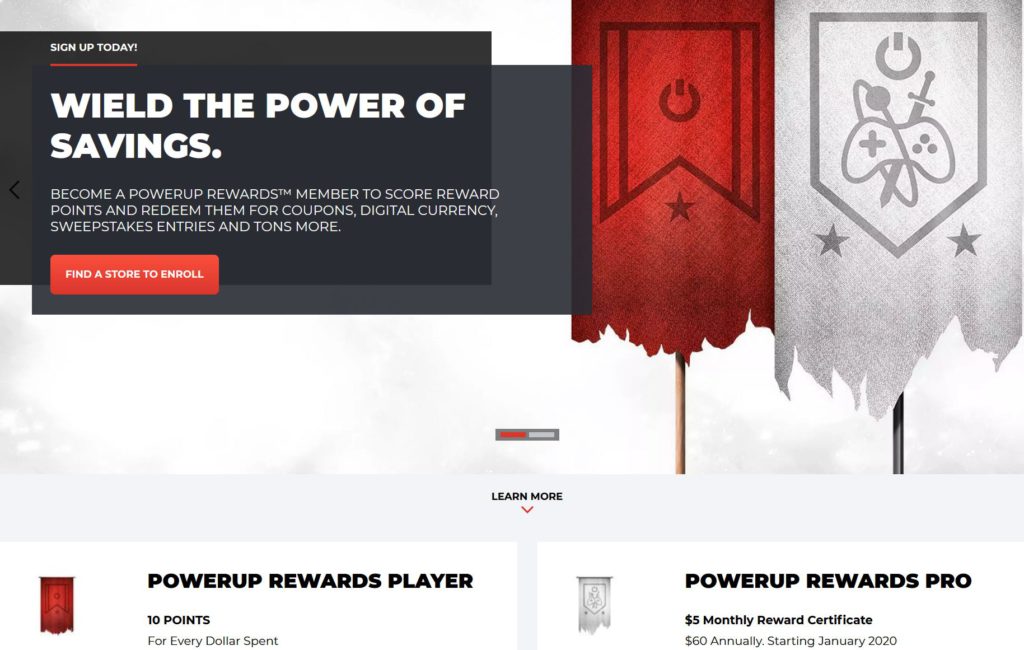GameStop is the last vestige of brick and mortar electronic gaming stores. It is a business of acquisitions, claiming most other large competitors and merging them into the fold and is on every YouTube and blog’s “Top 10 Companies Soon to Pull a Blockbuster” for the last six months to a year or so. Are they right? Is GameStop about to go under? I honestly am not some kind of market wizard, I can’t say if their current plans will save them or not, but we can talk about what’s gotten them to this point, in context of video game sales (not the whole who bought who what when and where, lots of that is already out there).
So this chart pretty much tells a very, very interesting story. The company went public in 2002 at around $10 USD a share. In 2002, we were still in the world of GameCubes, Xboxs and PlayStation 2s. The Xbox 360, Wii and PlayStation 3 wouldn’t launch in 2005 / 2006, which is when you see the stock starting to surge upward towards a peak of about $60 right before the great recession.
In this time, GameStop was aggressive and very anti-consumer and heavy into PC gaming experiences. Midnight releases were very common and pre-orders were a requirement to get anything the first week of its release. They were a lean, mean fighting machine of making money and games were physical releases only, well until the Xbox 360 and PS3 which allowed buying games from the online store.
Except, storage was severely limited and bandwidth wasn’t super fast, so that wasn’t always the best option. GameStop also sold used copies, which were cheaper and would replace any broken discs so even if they gave you a dud, you could exchange it and get one that worked, which saved them on overhead in testing the games.
Even with the great recession making it a tough market, they stayed at about $20 in value and continued to grow, having a slight dip before the launch of the PS4 and Xbox One in 2013 which once again sent their profits skyhigh, between the sell of the actual consoles and the games they were basically in a golden age.
Something occurred though, in the 2010s, that completely crashed the model that they had been working on for the last ages: digital downloads. The PlayStation 4 and Xbox One were designed for digital sales of games, with the Switch which released a little bit later coming with expandable storage for downloading games. GameStop, which made its profits off of selling games, buying them back for a fraction and selling them again at double to quadruple markup hit a snag:
- Digital downloads do not generate physical media for them to be able to buy and resale.
- Their biggest competitor, outside of big box stores, were the actual video game companies themselves selling directly through Sony, Microsoft and Nintendo.
- Amazon now has same day delivery of games via both its flagship site and Amazon Now.
- There is no more physical media scarcity to drive preorders, locking consumers into their purchase at GameStop.
So starting in 2015, they began a decline. They’ve tried a multitude of ways to fight it, from trying to become a wireless store to selling used tablets and phones and the recent play to sell mostly high margin collectables. They’re revamped their pro rewards for 2020 to give a $5 certificate monthly to try to attract consumers back into their stores and otherwise they’ve been trying different ways to stay relevant, but the issue continues to persist:
They’re not needed anymore.
They’re no longer relevant.
Physical game media is a quickly dying fad as major game developers and console makers are locking games down to the digital downloads to control pricing and make more profits for themselves.
For nostalgia of waiting for midnight releases at a GameStop with your preorder ticket in hand, it kind of sucks in the same way that renting movies from Blockbuster is no longer a thing. On the other hand, even if GameStop survives… it’s not going to be what we remember it as.
The 2000s have ate the 1900s alive and will continue to do so. If you don’t want GameStop to go away, best do all your shopping there. They survive based off their sales. Me, personally? Change is tough, but we need to get ready for it.








Comments are closed.